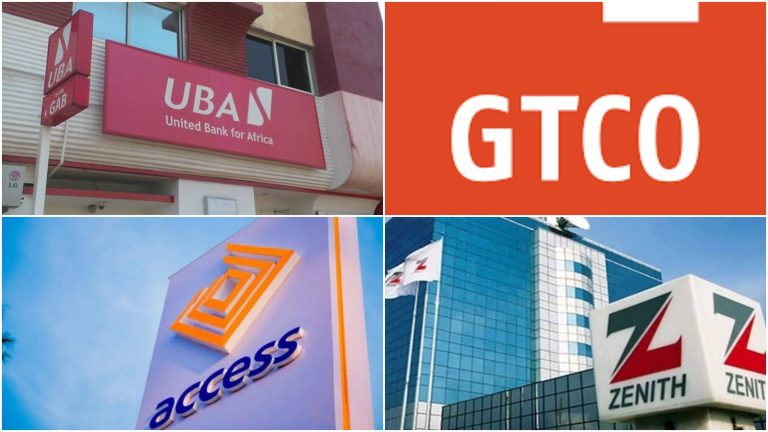PAG Felicitates Muslims on Commencement of Ramadan Fast
February 18, 2026TOP TEN MUSLIM UNIVERSITIES IN AFRICA
February 14, 2026ANALYSIS: Why Nigeria GDP is not the best in Africa Despite having the largest market
February 10, 2026Banks, Others, Counts Loses Due To Undersea Cable Cut
Banks, Others, Counts Loses Due To Undersea Cable Cut

The service disruption caused by Thursday’s cuts to the undersea cable supplying broadband Internet connectivity to Nigeria and countries in the West African sub-region, on Friday, forced many banks and other financial institutions, as well as telecom companies and allied firms to scale down their operations.
Customers of the financial institutions and telcos were also left frustrated as they could not carry out major transactions.
It was gathered that telecom engineers had been dispatched to the points of the cuts between Senegal and Cote D’Ivoire to quickly fix the fibre optic cables coming from Europe and restore services.
On Thursday morning, Internet outage was first reported in Ghana with the National Communications Authority issuing a statement that indicated that the outage was caused by “multiple undersea cable disruptions and affected mobile and fixed data services nationwide.
“The disruptions affecting multiple undersea cables responsible for carrying international traffic have occurred in Senegal and Cote D’Ivoire and with some disruptions in Portugal. This has led to a significant degradation of data services across the country.”
By afternoon, the undersea cable cuts had affected telecom services in other African countries, including Nigeria, slowing banking and other services run on Internet connectivity.
The Nigerian Communications Commission in a statement by the Director, Public Affairs, Reuben Muoka, confirmed that the undersea cable cuts disrupted data and voice services along the African West Coast.
The NCC stated, “A combination of cable cuts, resulting in equipment faults on the major undersea cables along the West African Coast, have negatively impacted data and fixed telecom services in several countries of West Africa, including Nigeria, Ghana, Senegal, and Cote d’Ivoire, among others,” adding that the cuts occurred somewhere in Cote d’Ivoire and Senegal, with an attendant disruption in Portugal.
It added, “Cable companies – West African Cable System and African Coast to Europe in the West Coast route from Europe – have experienced faults, while SAT3 and MainOne have downtime.
“Similar undersea cables providing traffic from Europe to the East Coast of Africa, like Seacom, Europe India Gateway (EIG), Asia-Africa-Europe 1 (AAE1), are said to have been cut at some point around the Red Sea, resulting in degradation of services across on these routes. In Nigeria and other West African countries, Internet access and speed have experienced disruptions in the six networks of service providers in the affected countries.”
The commission, however, said the operators of the affected cables had commenced repairs and services were gradually being restored.
“They have promised to work round the clock to ensure that services are restored to the affected countries within the shortest possible time. It is important to bring this information to the knowledge of corporate and individual consumers on these services,” NCC said in its statement.
MainOne, a key Internet provider for Nigerian banks, suffered a significant fibre cut leading to outages that has left some Nigerian banks offline, preventing customers from accessing banking apps or using USSD services.
Some bank officials told the Press that the financial losses resulting from the disruption caused by the undersea cable cuts were huge though not yet quantified.
Spokespersons for different banks said the disruption caused to telecom services by the undersea cable cuts had a significant impact on their operations.
The spokesman for a Pan-African bank, who spoke on condition of anonymity said, “All the systems are down but there seems to be some improvements today (Friday) compared to yesterday (Thursday).
“We hear that the telecom operators have resorted to their backup system to back up critical services. Our systems are up but slow. The financial risk is so huge; money is being lost and we don’t even know how much it will be until when services are fully restored.”
The spokesman added that this development required that stakeholders and governments on the African continent take a critical look at the tech infrastructure in Africa and chart a new way forward.
The Head of Corporate Communications at Unity Bank, Matthew Obiazikwor, said the bank had reached out to customers to inform them about the disruption and alternative channels that they could use to carry out their transactions.
“What we are trying to do now is keep our customers informed about what’s going on and tell them to make use of alternative channels. They can do their transfers on our ATM points. The network supports only minimal services now,” he said.
END.








